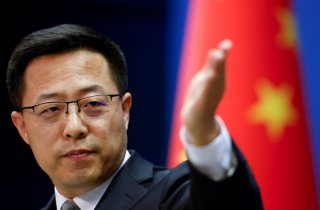Will U.S.-China Relations Ever Recover?
There is certainly scope for Beijing and Washington to learn how to avoid unintended additional provocations and to develop methods to limit unwanted crisis escalation. Unfortunately, however, our previous notion of normal U.S.-PRC relations may have become obsolete.
What would it take to bring about a recovery?
China undergoing a democratic revolution in the foreseeable future not only appears highly unlikely, but it would not necessarily transform U.S.-China relations. Democracy in China would not extinguish the nationalism that demands satisfaction of Chinese irredentism and deferential treatment by China’s smaller neighbors. Rather, the immediate result would be election campaigns featuring candidates pandering to Chinese nationalist sentiments to win votes.
The return of a large gap in capabilities between China and the United States would likely reduce bilateral strategic competition and clear the way for a more cooperative relationship. The most likely cause would be an economic crisis or political turmoil that caused either the United States or China to withdraw from the competition, similar to the way the USSR withdrew from the Cold War.
The other obvious possibility would be Beijing and Washington reaching an understanding on dividing and sharing strategic influence in the region. This would be bad news for U.S. allies and close partners in the region that fear Chinese domination. Any bargain acceptable to China would involve abandoning U.S. support for Taiwan and possibly other concessions such as acquiescing to Chinese ownership of the South China Sea, abrogating the U.S. alliance with South Korea, or an end to official condemnations of China for egregious human rights violations. Regional confidence in the United States keeping its remaining commitments would be gravely weakened, and Beijing might see the arrangement not as a permanent settlement, but encouragement to push harder for the last vestiges of U.S. strategic influence to exit the region.
There is certainly scope for Beijing and Washington to learn how to avoid unintended additional provocations and to develop methods to limit unwanted crisis escalation. Unfortunately, however, our previous notion of normal U.S.-PRC relations may have become obsolete.
Denny Roy is a Senior Fellow at the East-West Center. Follow him on Twitter @Denny_Roy808.
Image: China's foreign ministry spokesperson Zhao Lijian attends a news conference in Beijing, China November 16, 2021. Reuters/Carlos Garcia Rawlins.

